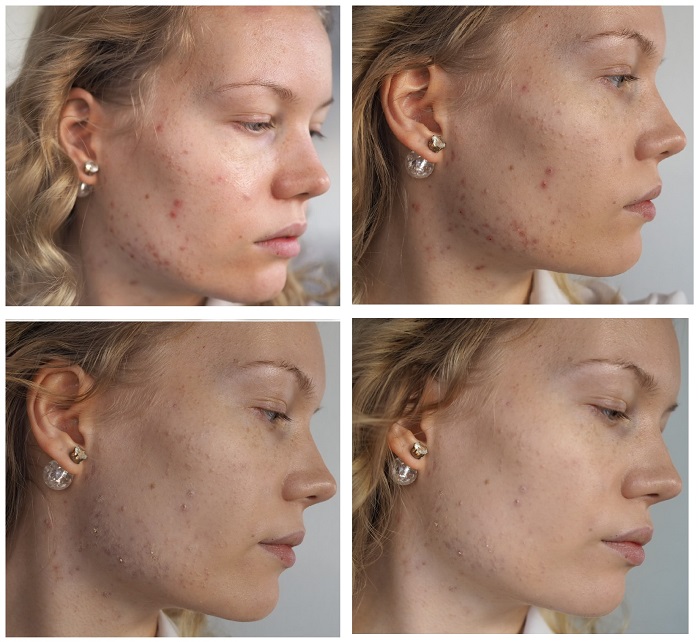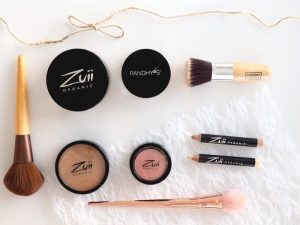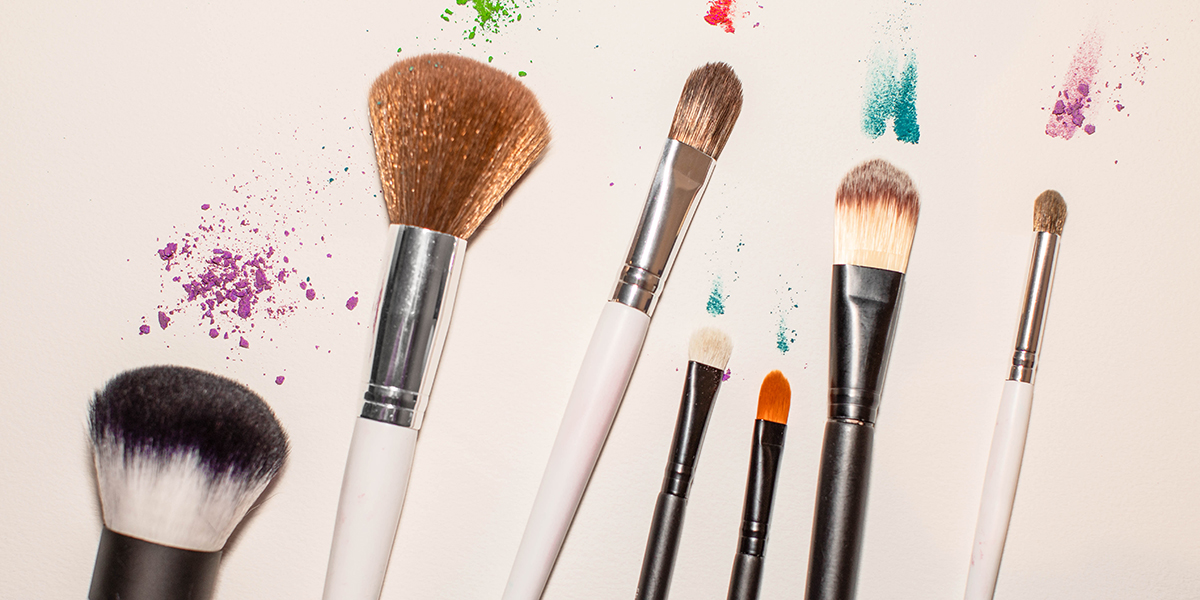Navigating the World of Acne-Friendly Makeup: A Comprehensive Guide
Related Articles: Navigating the World of Acne-Friendly Makeup: A Comprehensive Guide
Introduction
With great pleasure, we will explore the intriguing topic related to Navigating the World of Acne-Friendly Makeup: A Comprehensive Guide. Let’s weave interesting information and offer fresh perspectives to the readers.
Table of Content
Navigating the World of Acne-Friendly Makeup: A Comprehensive Guide

Acne, a common skin condition affecting millions, can be exacerbated by certain cosmetics. The quest for flawless makeup without compromising skin health has led to the rise of acne-friendly formulations. This guide delves into the intricacies of makeup that minimizes acne flare-ups, exploring its importance, benefits, and considerations for informed choices.
Understanding the Link Between Makeup and Acne
The connection between makeup and acne stems from several factors:
- Ingredients: Certain ingredients, like comedogenic oils, can clog pores, leading to breakouts.
- Application: Improper application techniques, such as using dirty brushes or applying excessive product, can introduce bacteria and irritate the skin.
- Product Build-up: Makeup residue left on the skin can trap dirt and oil, creating an environment conducive to acne development.
Key Ingredients to Avoid in Acne-Prone Makeup
While not all ingredients are universally problematic, certain components are known to trigger acne in susceptible individuals. These include:
- Comedogenic Oils: Oils like coconut oil, cocoa butter, and lanolin are known to clog pores, increasing the risk of breakouts.
- Silicones: While silicones provide a smooth, poreless finish, some individuals experience breakouts with their use.
- Fragrances and Dyes: Artificial fragrances and dyes can irritate sensitive skin, potentially leading to acne.
- Parabens: These preservatives are commonly found in cosmetics and have been linked to skin irritation and allergic reactions.
Essential Ingredients for Acne-Friendly Makeup
Several ingredients are known to be beneficial for acne-prone skin, promoting a clear complexion:
- Salicylic Acid: This beta hydroxy acid (BHA) effectively exfoliates the skin, unclogging pores and preventing breakouts.
- Glycolic Acid: This alpha hydroxy acid (AHA) promotes cell turnover, reducing the appearance of acne scars and improving skin texture.
- Tea Tree Oil: This natural antiseptic possesses anti-inflammatory properties, aiding in reducing acne inflammation and preventing further breakouts.
- Niacinamide: This vitamin B3 derivative helps regulate oil production, reduce redness, and improve skin barrier function.
Benefits of Acne-Friendly Makeup
Choosing makeup specifically designed for acne-prone skin offers several advantages:
- Minimized Breakouts: By avoiding pore-clogging ingredients and incorporating acne-fighting components, these formulations help prevent and reduce breakouts.
- Improved Skin Health: Acne-friendly makeup often contains ingredients that nourish and soothe the skin, promoting overall skin health.
- Enhanced Confidence: Feeling confident about your skin can significantly impact your overall well-being. Acne-friendly makeup allows you to embrace makeup without worrying about exacerbating your skin condition.
Factors to Consider When Choosing Acne-Friendly Makeup
Choosing the right makeup for acne-prone skin requires careful consideration of several factors:
- Skin Type: Identify your skin type (oily, dry, combination) to select products specifically formulated for your needs.
- Ingredients: Carefully review the ingredient list, avoiding comedogenic oils, silicones, fragrances, and parabens.
- Non-Comedogenic Label: Look for products labeled "non-comedogenic," indicating that they are less likely to clog pores.
- Oil-Free Formula: Opt for oil-free formulations to minimize the risk of clogged pores and breakouts.
- Hypoallergenic: Choose hypoallergenic products to reduce the risk of allergic reactions and skin irritation.
Tips for Using Acne-Friendly Makeup
- Clean Brushes and Sponges: Regularly wash makeup brushes and sponges with a gentle cleanser to prevent bacteria buildup.
- Minimal Product: Apply makeup sparingly to avoid clogging pores and irritating the skin.
- Gentle Removal: Use a gentle, oil-free makeup remover to remove all traces of makeup before bedtime.
- Moisturize: Even with oily skin, it’s important to use a lightweight, oil-free moisturizer to maintain skin hydration.
- Regular Exfoliation: Exfoliate your skin regularly to remove dead skin cells and prevent clogged pores.
- Consult a Dermatologist: If you have persistent acne, consult a dermatologist for personalized advice and treatment options.
Frequently Asked Questions
Q: Can I still wear full coverage makeup if I have acne-prone skin?
A: Yes, but it’s crucial to choose full coverage foundations that are oil-free, non-comedogenic, and formulated for acne-prone skin. Look for ingredients like salicylic acid or tea tree oil to provide additional benefits.
Q: Is it safe to use mineral makeup if I have acne-prone skin?
A: Mineral makeup can be a good option for acne-prone skin as it is often formulated with natural ingredients and free of harsh chemicals. However, it’s important to choose mineral makeup specifically designed for acne-prone skin and avoid products containing comedogenic oils.
Q: Can I use any type of sunscreen with acne-prone skin?
A: Not all sunscreens are created equal. Look for sunscreens labeled "non-comedogenic" and "oil-free" to minimize the risk of clogging pores. Mineral sunscreens containing zinc oxide or titanium dioxide are generally considered safe for acne-prone skin.
Q: Should I use a primer if I have acne-prone skin?
A: Primers can be beneficial for acne-prone skin if they are oil-free, non-comedogenic, and formulated to mattify the skin. Look for primers that contain ingredients like salicylic acid or tea tree oil to provide additional acne-fighting benefits.
Conclusion
Navigating the world of acne-friendly makeup requires a thoughtful approach. By understanding the connection between makeup and acne, identifying key ingredients to avoid and embrace, and adopting smart application techniques, individuals can enjoy the benefits of makeup without compromising skin health. Remember, a clear complexion starts with a well-informed approach to makeup selection and application.








Closure
Thus, we hope this article has provided valuable insights into Navigating the World of Acne-Friendly Makeup: A Comprehensive Guide. We thank you for taking the time to read this article. See you in our next article!